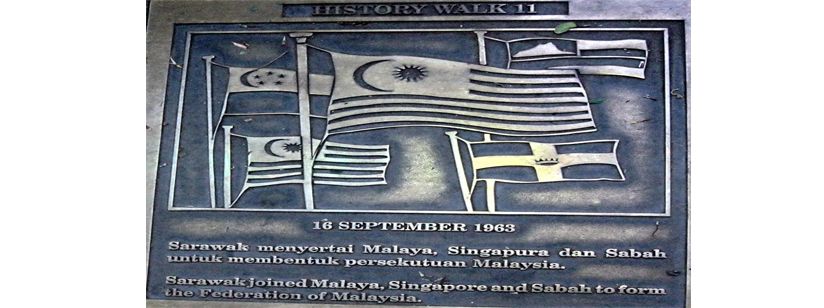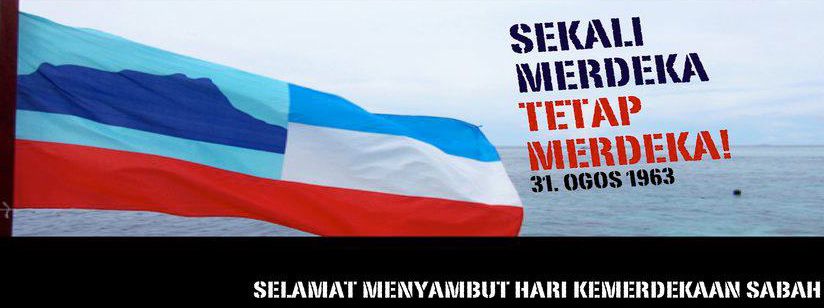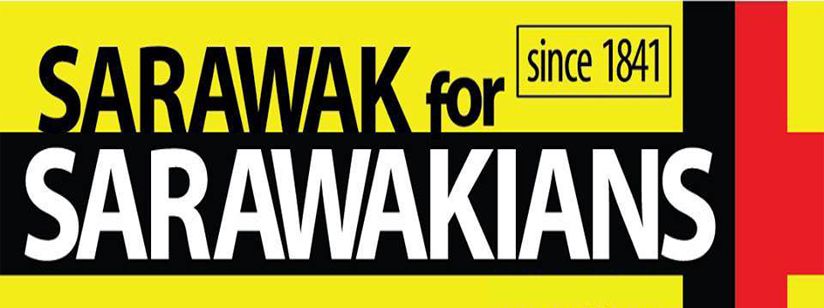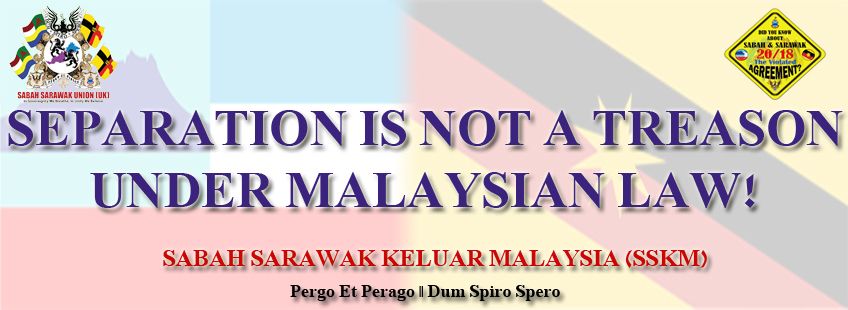KOTA KINABALU: In a joint statement issued today, the Sabah Sarawak Rights Australia New Zealand (SSRANZ) international NGO and the Borneo's Plight in Malaysia Foundation (Bopimafo) NGO, along with other political parties, NGOs and individuals, expressed their support for former law minister Tan Sri Wan Junaidi Tuanku Jaafar's assertion of the right of the Sabah people to self-determination. They also raised questions about the validity of the Malaysia Agreement 1963 (MA63) and the process through which Sabah and Sarawak joined the federation of Malaysia.
SSRANZ President Robert Pei and Bopimafo President Daniel John Jambun commended Tan Sri Wan Junaidi for his speech at the Sabah Colloquium on 4 July 2023, where he emphasized the right of nations to self-determination. They highlighted that self-determination is an inalienable legal right recognized by the United Nations General Assembly Resolution (UNGAR) 1514, which allows colonies to determine their destiny and political independence without foreign interference.
On the 60th anniversary of the signing of the Malaysia Agreement (MA63), the NGO leaders raised concerns about whether the people of Sabah and Sarawak have truly achieved self-determination and the promised development progress and prosperity. They disagreed with the notion that the Cobbold Commission of Enquiry's findings, indicating two-thirds of the people supported integration into Malaysia, constituted a valid exercise of self-determination.
The NGO leaders pointed out that the Cobbold Commission's findings were based on a selective survey of opinions rather than a referendum under UNGAR 1541. They stressed that the commission's report was not legally binding and did not fulfill the requirements for a free choice or self-determination by the people in accordance with UNGAR 1541. The commission was merely an inquiry and not a proper referendum, which was necessary for the people to express their wishes on the federation question.
They further criticized the composition of the Cobbold Commission, consisting of British and Malayan officials, which they considered a conflict of interest. The NGO leaders argued that the commission's purpose was to facilitate the implementation of the Malaysia concept, denying the people of North Borneo (Sabah) and Sarawak their right to genuine self-determination and independence.
The NGO leaders also highlighted the Manila Accord signed between the Malayan, Indonesian, and Philippine governments, which called for a United Nations assessment of the people's wishes on Malaysia and the resolution of the Sulu Claim on Sabah. By accepting the terms of the Accord, the British and Malayan governments indirectly acknowledged that the people's consent had not been properly obtained through a referendum.
The statement by SSRANZ and Bopimafo emphasized that the Cobbold Commission's report was not a legally binding document and should not be considered a substitute for a proper referendum. They contended that the report, along with the entire process leading to the Malaysia Agreement 1963, was tainted with illegalities and used to legitimize Malaysia's formation.
The NGO leaders concluded that the lack of real self-determination for Sabah and Sarawak was evident by the ongoing Sulu Claim, which still challenges Sabah's sovereignty. They argued that a proper referendum in 1963, as advocated by the Philippines, could have resolved the claim and allowed the people of Sabah to choose between Malaysia, independence, or another state.
The statement by SSRANZ and Bopimafo, raises significant concerns about the historical context and legal basis of Sabah's integration into Malaysia. As the debate on Sabah's self-determination continues, it remains to be seen how the Malaysian government and relevant stakeholders will address these issues and ensure the rightful representation of the Sabah people's aspirations and interests.
The SSRANZ and Bopimafo Presidents said in conclusion, there was no real self-determination for Sabah or Sarawak is highlighted by the fact that Sulu claim is still alive and continues to be asserted by the claimants. The resolution of the claim could have been achieved in a proper referendum in 1963 whereby the Sabah people were seen to have cast a vote to choose Malaysia, Philippines or independence.
The late Philippines Diosdado Macapagal said in 1982: “In laying claim to North Borneo in pursuance of the legal and historic rights and the security interests of the Philippines, we recognize the cardinal principle of self-determination of which the Philippines has been a steadfast adherent.
In the prosecution, of our valid claim, it is agreeable to us that at an appropriate time, the people of North Borneo should be given an opportunity to determine whether they would wish to be independent or whether they would wish to be a part of the Philippines or be placed under another state.
Such referendum, however, should be authentic and bona fide by holding it under conditions, preferably supervised by the United Nations that would insure effective freedom to the people of North Borneo to express their true and enlightened will.”
The joint statement received endorsements from various political parties, NGOs and individuals, including Doris Jones of the Sabah Sarawak Union, Lina Soo, President of ASPIRASI, Voon Lee Shan, President of Parti Bumi Kenyalang and Mosses Paul Anap, President of the Republic of Sabah North Borneo NGO. The signatories collectively questioned the validity of the Malaysia Agreement 1963 and called for a reevaluation of the process through which Sabah and Sarawak joined Malaysia.
Robert Pei
President SSRANZ
Daniel Jambun
President of the Borneo’s Plight in Malaysia Foundation (Bopimafo).
Mosses Paul Anap
President of NGO- Republic of Sabah North Borneo
Emily Elvera Edward
Woman Council Office & Secretariat.
Sabah Sarawak Borneo Natives Organisation Incorporated of Australia.
Endorsed by: NGOS & individuals
1. Doris Jones Sabah Sarawak Union – SSU
2. Kanul Gindol Chairman Gindol Initiative for Civil Society
3. Ricky Ganang Penasihat Persatuan Kebudayaan Orang Darat Sabah
4. Jovilis Majami President Persatuan pembangunan sosial komunity Sabah (BANGUN)
5. Wainin Setimin President Pertubuhan Prihatin Mualaf Sabah
6. Cleftus Stephen Mojingol President Pertubuhan Kebudayaan Rumpun Dayak Sabah.
8. PBK Life President- Yu Chin Lik
9. PBK President- Voon Lee Shan
10. Lina Soo - ASPIRASI President
11. Peter John Jaban-Deputy President for Global Human Rights Federation Borneo.
12. Alim Ga Mideh for Bulang Birieh Dayak
13. Lawrance Clement Ahsay for Bulang Dayak Bukit Kelingkang
14. Buln Ribos- Sarawak Rights activist
Reference:
The Vibes: Sabahans Self-Determination Trumps Any Treaty_Wan Junaidi
 Emergency Creation of Malaysia Without Legal Basis
Emergency Creation of Malaysia Without Legal Basis

























































